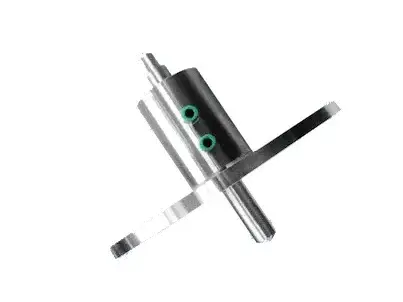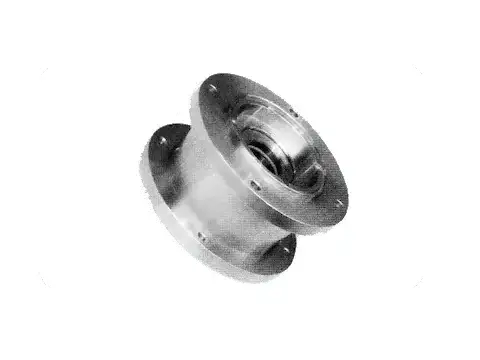Importance of Pressure Control in Industrial Sealing Systems
Industrial processes often involve extreme conditions—high temperatures, intense pressures, and reactive chemicals. To maintain system safety and ensure reliable performance, manufacturers rely on components that can manage these demanding environments. One such component is the agitator seal pressure system, a crucial part of rotating equipment such as reactors, mixers, and storage tanks. This technology provides a safeguard against material leakage, contamination, and equipment failure. As industries move toward more specialized and automated operations, the role of agitator seal pressure systems becomes increasingly important.
Understanding the Function of Agitator Seal Pressure
Mechanism of pressure sealing in agitators
Agitator seal pressure systems are designed to seal rotating shafts in agitators, preventing the escape of process fluids and the ingress of external contaminants. These systems work by maintaining a controlled pressure environment between the mechanical seal faces. This pressure is either equal to or higher than the pressure inside the vessel, effectively creating a barrier.
In many industrial settings, double mechanical seals are used with a pressurized barrier fluid to ensure maximum sealing effectiveness. The barrier fluid acts as a lubricant and cooling medium while also preventing process fluid leakage. Agitator seal pressure helps extend the lifespan of the seals, reduces wear and tear, and minimizes maintenance requirements.
Importance in high-risk processing environments
Agitator seal pressure plays a pivotal role in sectors that deal with hazardous or sensitive materials, such as pharmaceuticals, chemicals, and food processing. A loss in seal pressure could lead to product contamination, safety hazards, or regulatory violations. By maintaining precise seal pressure, industries ensure consistent product quality and operational reliability.
In bio-reactors or chemical reactors, where pressure and temperature fluctuate significantly, maintaining agitator seal pressure prevents disruptions and ensures sterile or contained environments. This function is essential for processes involving aseptic conditions or volatile substances.
Key Components of Agitator Seal Pressure Systems
Sealing elements and housing
The core components of agitator seal pressure systems include the seal faces, secondary seals (like O-rings), gland plates, and seal housings. These elements are engineered from materials such as carbon, silicon carbide, and elastomers to withstand demanding operational environments. The seal faces must remain in precise contact to prevent leakage, and the material selection plays a vital role in wear resistance.
The housing supports alignment and secures the seal assembly in place. It must be designed to resist internal and external pressure while allowing smooth rotation. Every component must work in unison to achieve optimal sealing performance.
Pressure control systems and instrumentation
Effective agitator seal pressure management involves sophisticated instrumentation. Pressure control systems, which may include pressure transmitters, regulators, and feedback controllers, maintain the necessary barrier fluid pressure. Modern systems often feature digital monitoring, automated alerts, and real-time adjustments to adapt to process changes.
These innovations help detect early signs of seal degradation or pressure imbalance, allowing timely intervention. Remote monitoring systems and IoT-based solutions are increasingly integrated into agitator seal pressure setups to enhance reliability and maintenance efficiency.

Advantages of Proper Agitator Seal Pressure Management
Reduction of maintenance and downtime
One of the primary advantages of managing agitator seal pressure effectively is the reduction in unscheduled maintenance and downtime. When the seal operates under optimal pressure conditions, friction is minimized, resulting in less wear and longer seal life. This translates to fewer operational interruptions and better resource planning.
Proper agitator seal pressure also simplifies maintenance schedules. By reducing the incidence of seal failures and leakages, industries can allocate their maintenance efforts more efficiently. This enhances overall plant uptime and productivity.
Protection of product integrity and process safety
Maintaining accurate agitator seal pressure is crucial for safeguarding the quality and integrity of the processed materials. Any drop in pressure could introduce contaminants into the system or allow hazardous materials to escape. This is especially significant in pharmaceutical and food production, where even minimal contamination can render entire batches unusable.
In chemical processes, poor pressure control could result in leaks that pose environmental and safety risks. Agitator seal pressure systems thus serve as a frontline defense against accidents and quality deviations.
Industry Applications of Agitator Seal Pressure
Use in pharmaceutical and biotech operations
In the pharmaceutical sector, cleanliness and precision are paramount. Agitator seal pressure systems ensure the sterility of the production environment by preventing microbial ingress and maintaining aseptic conditions. They also help in complying with regulatory frameworks such as GMP (Good Manufacturing Practice) and FDA guidelines.
Custom-built agitator seals with pressure regulation are widely used in bio-reactors, fermenters, and compounding tanks. The ability to maintain consistent seal pressure during SIP (Sterilization in Place) and CIP (Clean-in-Place) processes is essential for pharmaceutical manufacturing.
Role in chemical and petrochemical industries
Chemical and petrochemical industries involve handling aggressive media like acids, alkalis, and volatile solvents. Agitator seal pressure ensures that these substances are safely contained within the system. Seal failures in such environments can lead to hazardous leaks and potential explosions.
By employing advanced sealing technology with precise pressure control, chemical processors minimize downtime and enhance environmental compliance. The seals used in this sector are often engineered to withstand extreme temperatures and fluctuating pressures.
Challenges and Solutions in Agitator Seal Pressure Systems
Dealing with fluctuating process conditions
Agitator seal pressure must remain stable even when internal process conditions vary. Fluctuating temperatures, mixing speeds, and fluid viscosities can impact pressure equilibrium. Manufacturers address these challenges by designing adaptive sealing systems that can handle variability.
Advanced control systems equipped with sensors and real-time feedback loops are employed to maintain steady agitator seal pressure. These solutions help to balance the pressure across the seal faces and ensure consistent performance regardless of external changes.
Material compatibility and chemical resistance
Not all materials can withstand the harsh environments found in industrial processes. Selecting the right materials for seal faces, elastomers, and barrier fluids is critical for effective agitator seal pressure performance. Factors such as chemical resistance, thermal stability, and mechanical durability must be considered.
Material testing and validation processes are essential steps in developing compatible seal assemblies. Manufacturers often work closely with end users to determine the optimal materials for each specific application.
Innovations Enhancing Agitator Seal Pressure Systems
Integration of smart technologies
Recent advancements in smart technologies have transformed how agitator seal pressure systems are monitored and maintained. Sensors now track variables such as pressure, temperature, and seal wear in real time. This data is processed through cloud-based platforms or local control systems to facilitate predictive maintenance.
These smart systems provide alerts when parameters deviate from set limits, allowing operators to take corrective action before failures occur. The result is improved uptime, reduced maintenance costs, and enhanced process control.
Customization for industry-specific needs
No two industrial processes are identical. That’s why manufacturers offer customized agitator seal pressure solutions tailored to specific equipment, process requirements, and compliance standards. These customizations include unique material choices, design adaptations, and integration with existing control architectures.
Customized systems ensure a perfect fit for both equipment and operational demands. They offer better sealing performance, easier maintenance, and improved lifecycle value for industrial users.
Selecting a Reliable Agitator Seal Pressure Partner
Assessing manufacturing capabilities and certifications
When selecting a provider for agitator seal pressure systems, it is important to evaluate their manufacturing capacity and quality control practices. Certifications such as ISO 9001 and compliance with industry-specific standards indicate a manufacturer’s commitment to quality.
Suppliers should also offer testing and validation services, including pressure testing, material compatibility assessments, and performance simulations. These capabilities ensure that the delivered product meets the operational expectations and safety standards.
Importance of technical support and service
Reliable after-sales service is a critical factor in maintaining agitator seal pressure systems. Technical support teams should be able to provide installation guidance, troubleshooting, and ongoing maintenance assistance. Access to spare parts, training programs, and remote diagnostics adds further value.
Long-term partnerships with knowledgeable suppliers help reduce lifecycle costs and ensure consistent sealing performance. Proactive service support contributes to operational stability and continuous improvement.
FAQ
What is agitator seal pressure?
Agitator seal pressure refers to the controlled pressure applied within a mechanical seal system to prevent leakage and ensure proper sealing in rotating equipment like mixers and reactors.
Why is agitator seal pressure important in industrial processes?
It ensures product integrity, protects against contamination, and maintains safe operating conditions, especially in sensitive or hazardous processing environments.
Table of Contents
- Importance of Pressure Control in Industrial Sealing Systems
- Understanding the Function of Agitator Seal Pressure
- Key Components of Agitator Seal Pressure Systems
- Advantages of Proper Agitator Seal Pressure Management
- Industry Applications of Agitator Seal Pressure
- Challenges and Solutions in Agitator Seal Pressure Systems
- Innovations Enhancing Agitator Seal Pressure Systems
- Selecting a Reliable Agitator Seal Pressure Partner
- FAQ


